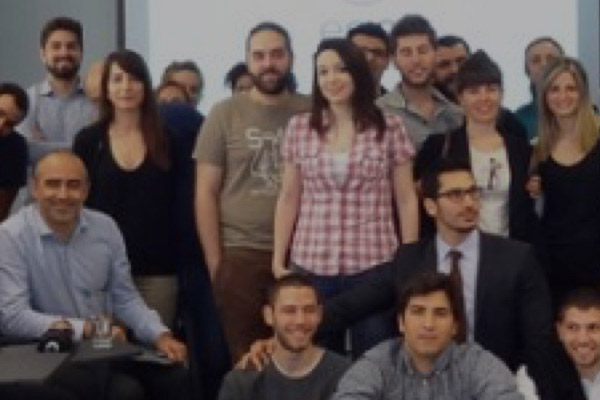Eurobank EFG hosted the Greek shipping community at an event that has effectively opened the international shipping exhibition “Posidonia 2012”, which is held in Athens, 4-8 June.
The event was attended by Eurobank EFG CEO, Mr. Nicholas Nanopoulos, and the Deputy CEOs Messrs Nikolaos Karamouzis, Byron Ballis and Michael Colakides, and more than 200 representatives of the Greek shipping community, who had the opportunity to listen to a speech by Doctor Martin Stopford, a “guru” of the shipping industry.
In his introductory remarks Mr. Nanopoulos said on the current macro-economic situation in Greece that “Our collective response to this unprecedented crisis should therefore be focused on nothing else but the stabilization and restructuring of the Greek economy in cooperation with our European partners – amending and improving terms of the Memorandum as required by current circumstances - and placing particular emphasis on policies and initiatives that support growth, foster private investment and encourage healthy entrepreneurship.” Regarding developments in the banking system, Mr. Nanopoulos explained that “Fully supporting the PSI initiative was the appropriate decision for Greek banks. Evidently, this decision came at a very heavy cost for their shareholders, adversely impacting the banks’ capital position and their financial results. The recapitalization process, currently under deliberation, will cover losses from the PSI and those stemming for the BlackRock diagnostic exercise, and lay the foundations for a new era of stability, confidence and credibility for Greek banks.” He added that “Greek banks’ capital will be initially strengthened with the use of HFSF funds and the first €18 bln have already been dispatched to the four largest banks. Subsequently, their recapitalization framework will need to be designed and established, before any private capital can be invited to contribute,” highlighting that “In this context, key decisions will have to be made, including the nature of the Greek banking system, and whether it will be private sector oriented or will be dominated by public sector entities, with all the obvious and undesirable repercussions.” “In our view, it is imperative to maintain the private nature of the Greek banking system, not only to contain the amount of public funds that will be committed to Greek banks, and limit tax payers’ contribution, but also in order to ensure that important and critical resource allocation decisions on the destination of the public’s savings will be made on the basis of sound, transparent, pro-growth economic and financial judgment, and will not be impacted by extraneous considerations and other interferences or motives,” said Mr. Nanopoulos warning that “Nationalization of the Greek banking system would send a particularly negative message to the international markets and business community, and would literally constitute a giant leap backward, with negative consequences for the economy and the investment profile of the country internationally.”
Doctor Martin Stopford, the keynote speaker, presented an overlook of the historical cycles of shipping in an original and vivid presentation noting that we have already entered a new cycle and that the entrepreneur who reads the omens promptly and acts accordingly will be the winner. “Shipping has never been an easy game to play. It looks like a difficult decade ahead, with the cash squeeze only just starting. Patience is needed,” noted Doctor Stopford. “Low returns, high fuel costs, and problems over the availability of finance suggest a decade of cost control and a strategy of careful investment opportunism,” he added. “S&P liquidity is limited, so opportunism must be part of strategy. Newbuildings now look at fair value, but it is a risky game,” warned Doctor Stopford. “Debt is likely to remain difficult. There is plenty of equity but it is hard to access, so for shipping cash will be king (again),” he explained. Commenting on the particular characteristics of the Greek-owned fleet, Doctor Stopford noted that it “is dominated by medium sized players and broad spread of types. Bulkers and tankers are OK but we should expect a long haul. Containerships are interesting due to changing liner model, KG problems and are under-represented in the Greek portfolio.” He also noted that “dealing with regulations will also be a problem.”
Martin Stopford is a graduate of Oxford University and has a PhD in International Economics from London University. During his 41 years in the Maritime Industry he has held positions as Director of Business Development at British Shipbuilders; Global Shipping Economist with Chase Manhatan Bank N.A.; Chief Executive of Lloyds Maritime Information Services; and executive director of Clarksons PLC. He is currently President of Clarkson Research Services Limited.
Doctor Stopford is also a visiting Professor at Cass Business School in London, at Dalian Maritime University in Chinam, at Newcastle University and at Copenhagen Business School. In 2010, he received a lifetime achievement award at the Lloyds List Global Shipping Awards.
His publications include “Maritime Economics” 3rd Edition, the widely used shipping textbook published in January 2009 as well as many papers on shipping economics and ship finance.



